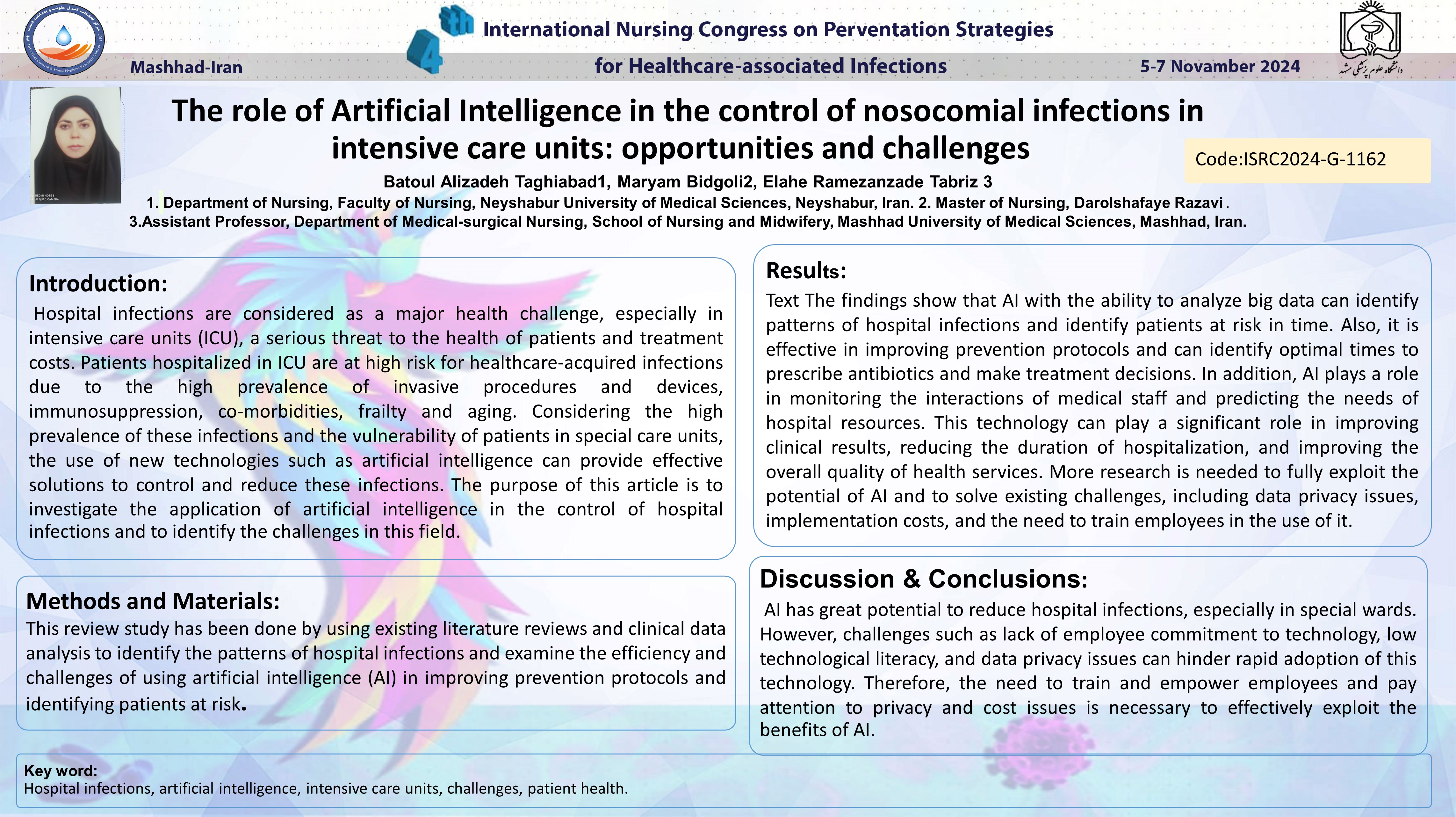نقش هوش مصنوعی در کنترل عفونتهای بیمارستانی در بخشهای ویژه: فرصتها و چالشها
کد: G-1162
نویسندگان: Batoul Alizadeh Taghiabad © ℗, Maryam Bidgoli Gol Khatme, Elahe Ramezanzade Tabriz
زمان بندی: زمان بندی نشده!
دانلود: دانلود پوستر
خلاصه مقاله:
خلاصه مقاله
The role of artificial intelligence in the control of nosocomial infections in intensive care units: opportunities and challenges Introduction: Hospital infections are considered as a major health challenge, especially in intensive care units (ICU), a serious threat to the health of patients and treatment costs. Patients hospitalized in ICU are at high risk for healthcare-acquired infections due to the high prevalence of invasive procedures and devices, immunosuppression, co-morbidities, frailty and aging. Considering the high prevalence of these infections and the vulnerability of patients in special care units, the use of new technologies such as artificial intelligence can provide effective solutions to control and reduce these infections. The purpose of this article is to investigate the application of artificial intelligence in the control of hospital infections and to identify the challenges in this field. Methods and Materials: This review study has been done by using existing literature reviews and clinical data analysis to identify the patterns of hospital infections and examine the efficiency and challenges of using artificial intelligence in improving prevention protocols and identifying patients at risk. Results: Text The findings show that AI with the ability to analyze big data can identify patterns of hospital infections and identify patients at risk in time. Also, it is effective in improving prevention protocols and can identify optimal times to prescribe antibiotics and make treatment decisions. In addition, AI plays a role in monitoring the interactions of medical staff and predicting the needs of hospital resources. This technology can play a significant role in improving clinical results, reducing the duration of hospitalization, and improving the overall quality of health services. More research is needed to fully exploit the potential of AI and to solve existing challenges, including data privacy issues, implementation costs, and the need to train employees in the use of these technologies. Discussion & Conclusions AI has great potential to reduce hospital infections, especially in special wards. However, challenges such as lack of employee commitment to technology, low technological literacy, and data privacy issues can hinder rapid adoption of this technology. Therefore, the need to train and empower employees and
کلمات کلیدی
Hospital infections, artificial intelligence, intensive care units, challenges, patient health
